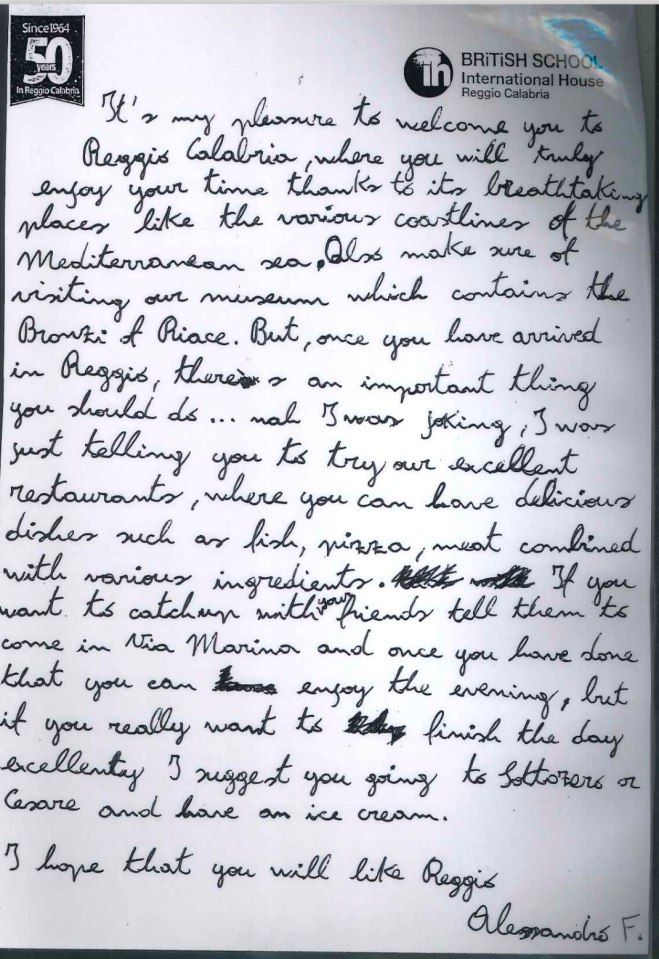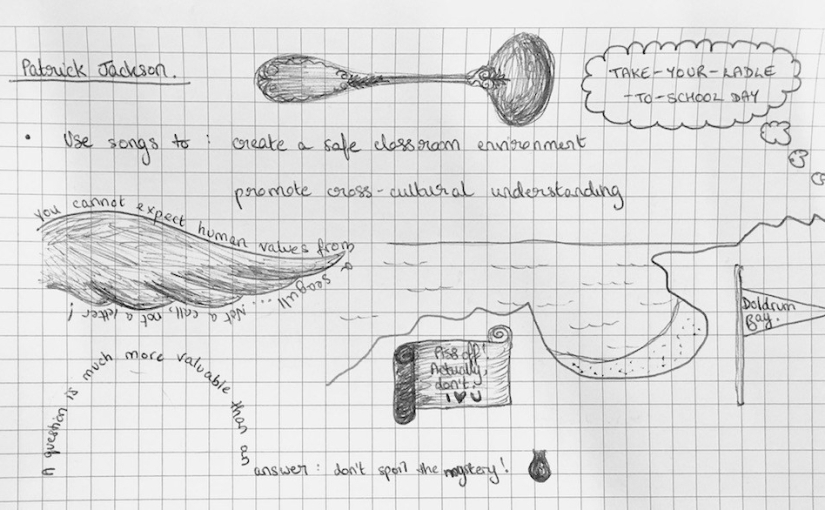Look, I’ve done observations before, obviously.
Every time I’m struggling for ideas, I like to pop round a few neighbouring classrooms on the hunt for something new I can shamelessly steal. Sometimes colleagues even come to me first and ask if I wouldn’t mind sitting in for half a lesson, so they can get a second opinion on something that’s been bugging them. And heaven knows that my TP group on the Delta were observation-obsessed, every last one of us only too happy to take a lesson to shreds with pen and paper, and then put it back together again via verbal feedback.
The problem was that I’d never conducted a formal observation before, you see. At least, not one with real paperwork that would be scanned and filed forever, or actual real-life stakes at play ranging from that teacher’s self confidence in the classroom to the size of their end-of-year bonus. Up until a week ago, formally observing my colleagues still seemed like a role I’d somehow never be ready for. The problem with taking promotions at work, however, is that they also come with added responsibilities, and my boss quickly made it clear that this was to become the newest skill in my arsenal without any further ado.
The silliest thing I did was not asking for help straight away. Instead, I notified my “observees” that I’d be sitting in for a full lesson of their choice the following week, and willed everything to go smoothly without asking anyone what that was actually supposed to look like. When it finally occurred to me to ask Twitter for help, I realised I should have sat down with each teacher beforehand: firstly, to ask them what they were most concerned about, and secondly, to tell them what particular areas I wanted to focus on when observing, just the way we do with students before they sit exams.
Oh, well. Too late for that. We’d been through the lesson aims and the plan together, everything looked good, and in we went.
I wrote like a madwoman during those two observations, only realising my naivety afterwards as I combed through six full pages of barely legible scrawl in my notebook. How could I make sense of my notes in a way that would potentially mean something to the observees as well as my future self coming back to the observation documents a few months down the line? Having learned from my earlier mistake, I immediately turned to my DoS for help with the written feedback, and between her category-based method of grouping similar points and my traffic-light system for ranking their importance, we managed to redact those six pages into a pithy A4 page per teacher.
The final hurdle was meeting with my observees and talking them through my feedback, which from my perspective was far and away the most stress-inducing component of the whole rigmarole. What if they hated what I had to say? What if they got defensive and refused to accept it? What if they couldn’t see how my suggestions lined up with what I had observed in the classroom?
Obviously, none of those things happened, because I work with lovely, polite people who are incredibly keen to develop. And I daresay the conversations were actually more informative for me than they were for my observees, given how much I have to learn in my initial period of trialling this newly learned skill. But it all went off without my destroying anybody’s morale in the process! And the paperwork was all done on time too. Wonders never cease.
I know that this is one area at work where I have a very, very steep learning curve ahead of me, but it’s one of those things I’m only too happy to put time into, especially as I can feel it moving me ever-closer to my teaching endgame, i.e. working as a full-time teacher trainer. Having said that, part of me also let out a sigh of relief when I realised I wouldn’t have to do any more formal observations until next term … So, until then, if you need me, you’ll find me buried under a pile of books that are more or less all entitled ‘How to be less terrible the next time you observe someone‘. Thanks again for the help, ELT Blogverse and Twitterverse – I’ll let you know how the next one goes!

















